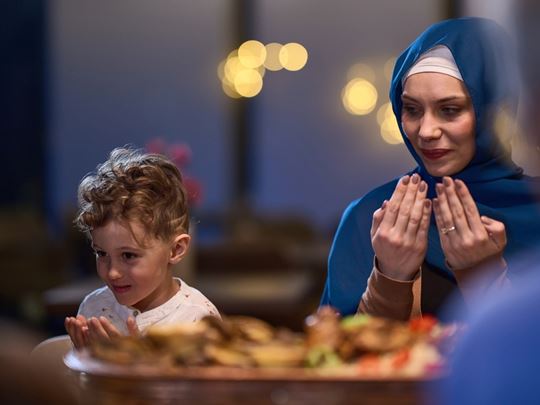How to celebrate diversity in an interfaith household
Here at ACS we specialise in matching children with families who can best fulfil their cultural and religious needs. We champion diversity and building strong relationships between people of different faiths.

Interfaith families: embracing difference
Modern families come in all shapes and sizes, and interfaith households are a unique and wonderful expression of that truth. Every interfaith family looks different, and navigating life in a household with more than one religion can have its challenges. For example, partners who practice a different religion or denomination of a faith may have occasional disagreements over family matters, and will likely be no stranger to compromise!
It’s a beautiful thing when families come together to celebrate and uplift one another’s cultural and religious identities. Let’s celebrate together by exploring the intricacies of raising a child in a multi-faith household, and look at some ways in which you can thrive as an interfaith family with your foster child.
Think you’re ready to foster?
Find out everything you need in order to become a foster parent, or feel free to get in touch with any questions
4 Ways to thrive as an interfaith family
Support your foster child’s religious needs
As a foster parent, it’s your job to support a child’s religious needs, whether or not you share their faith. This means a child must be free to practice their religion in a way they see fit. It’s all about respecting one another and recognising the importance of a person’s individual relationship to their spirituality.
You should foster a healthy environment where religious expression is encouraged so that the child in your care understands that their faith is valued and respected. Practical considerations include taking a child to their place of worship and ensuring they have everything the need to practice their faith. This includes a quiet and private space—their own personal bedroom— which is a requirement for all foster children. Having this space not only gives a child a peaceful place for reflection and prayer, it also ensures that their privacy is respected.
ACS foster parents can take part in our online courses, which include ‘Cultural Awareness’ and ‘Caring for a Child from a different Ethnicity, Race or Religion.’ These sessions, run virtually by our experienced trainers, and are a great resource for multi-faith families.
Explore one another’s culture
One of the best ways to thrive as an interfaith family is to be curious about one another’s beliefs. This could be as simple as asking your foster child and people in their religious community thoughtful questions about their religion, as well as personal research. Take the time to really get to know the religious beliefs of others in your household, beyond just a surface level. For example, you may understand that your foster child cannot eat certain foods, but have you taken the time to understand the reasons why certain foods are prohibited by their faith? Your commitment to learning shows your child that you are genuinely interested in their relationship with their religion, and better equips you to advocate for their spiritual needs.
You can also get more hands-on by taking the time to get to know the local community who share your foster child’s religion, by attending celebrations or by trying out culturally significant recipes together at home. By embracing your foster child’s faith in all aspects of life, you help strengthen their sense of identity.
Respect one another’s boundaries
Communication is a key skill for people living in interfaith families. It’s important that everyone in your family is able to practice their faith in whichever way they choose. Some foster parents and children may be eager to celebrate religious holidays from faiths other than their own or be open to taking part in blended celebrations. Others may not be comfortable in taking part in the traditions or celebrations of a faith other than their own.
It’s important to respect this viewpoint, even if your own feelings differ. For example, you may be comfortable in attending services at your foster child’s place of worship, but they themselves may feel that taking part in aspects of a different religion, such as by singing along with religious hymns in school assemblies, is harmful to their own spirituality.
Make time for your partner
Fostering is a big commitment, and it can be easy for your personal goals and spiritual commitments to take a backseat while you adjust to this new and exciting lifestyle. Whether you and your partner share the same faith or have different beliefs, one of the most nurturing things you can do for your partner is to make time for them so that they can fulfil their spiritual needs.
By taking over childcare responsibilities for a short time, you allow your partner to nurture their own spirituality. They could use this time for community efforts such as volunteering, for private study or quiet reflection. By both being gracious enough to ensure that one another have time for in such important activities, you strengthen your spirituality as well as your relationship. Setting aside some time to study together as a couple can also help to bring you closer together.






